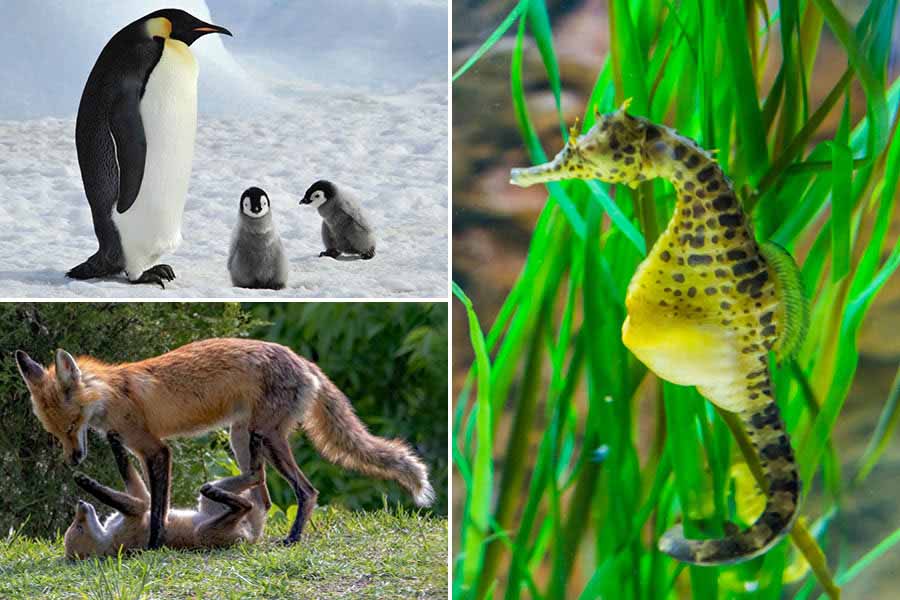With increasing conversations around gender roles and their impact on caregiving, fatherhood has undergone a huge change in the past decade, with dads becoming more hands-on than ever before. However, many animals have aced fatherhood since time immemorial, with dads doing much more than breadwinning in the upkeep of children. This Father’s Day, My Kolkata examines these forces of nature, who have been setting new standards of paternal care.
‘Proactive’ Seahorses
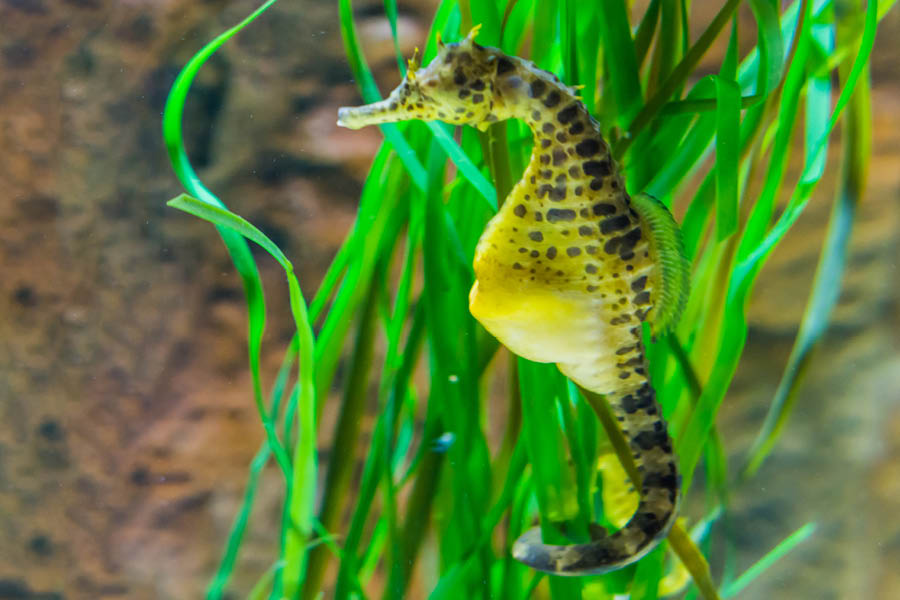
The father seahorse has a pouch in its stomach and can carry as many as 2,000 babies at a time Shutterstock
No animal breaks stereotypes quite like the seahorse. Unlike most species, it is the male seahorse that gets pregnant and undergoes childbirth. The pregnancy lasts for 10 to 25 days. The father has a pouch in its stomach to carry as many as 2,000 babies at a time! It can even regulate the water salinity of the pouch to prepare the young ones for the sea.
‘Brave’ Emperor Penguins
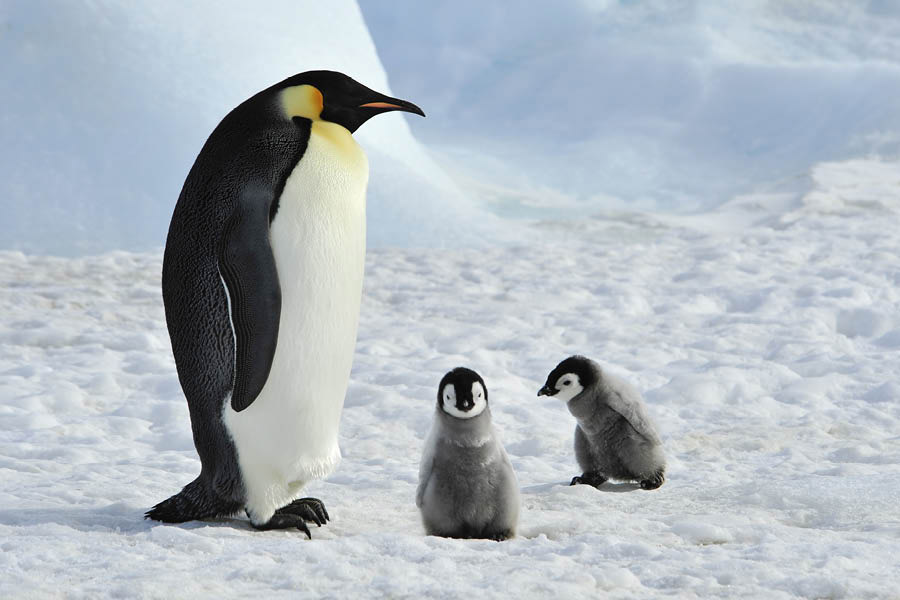
Once the egg is laid, the female penguin transfers it to the male and returns to the sea Shutterstock
The process of mating itself is drawn out over a long period of time in this species as the birds walk for a week, covering a distance of over 100km every April, just to find a partner. Once the egg is laid, the female penguin transfers it to the male and returns to the sea. Even this transfer of the egg is an important process, as the father must receive it with utmost care and prevent it from falling on ice. The father then incubates the egg in his brood pouch for over two months. Male penguins often huddle together and sleep standing up to brave temperatures dropping below -50 degrees Celsius.
‘Attentive’ Marmosets
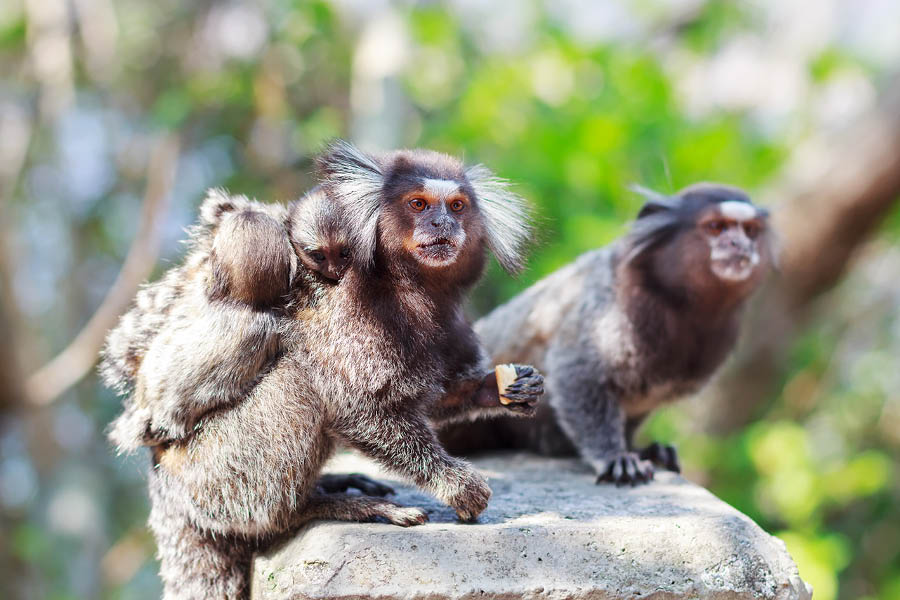
The father marmoset often helps the mother by carrying children on his back Shutterstock
There is a direct correlation of mortality rates and attentive fathers in this monkey species. The entire family plays an active role in raising the baby, and the father often helps the mother by carrying the children on his back. Some dads even have a notable testosterone spike while searching for their crying child.
‘Careful’ Red Foxes
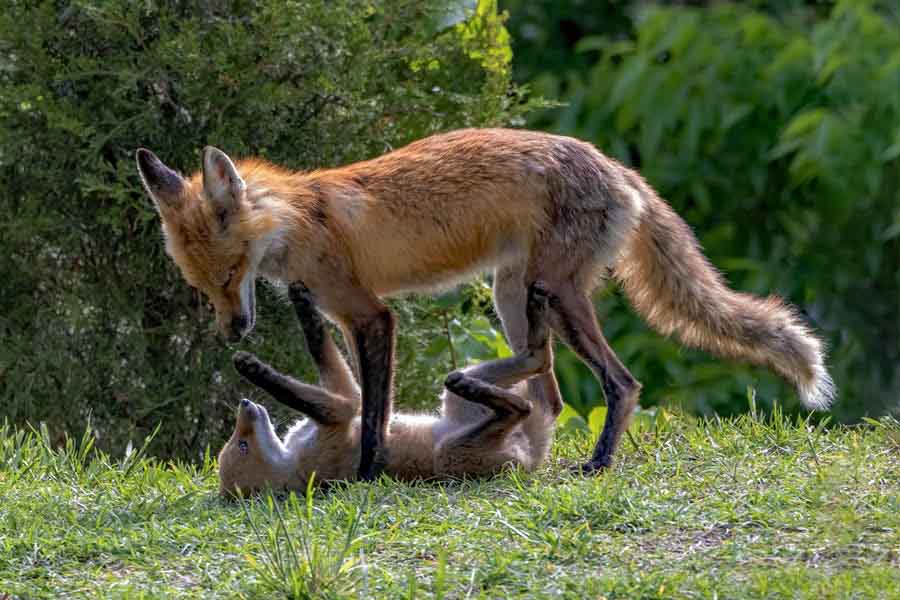
A male Red Fox at play with one of his pups Shutterstock
The male red fox has dramatic paternalistic instincts when it comes to threats, and is known to patrol the area around the den to ward off any predators. They are also known to travel several miles in search of food for their children. Once the children are a bit older, they also play an active role in grooming them. The father even prepares the children for the outside world by playing games that promote agility and hunting techniques.
‘Caring’ African Wild Dogs
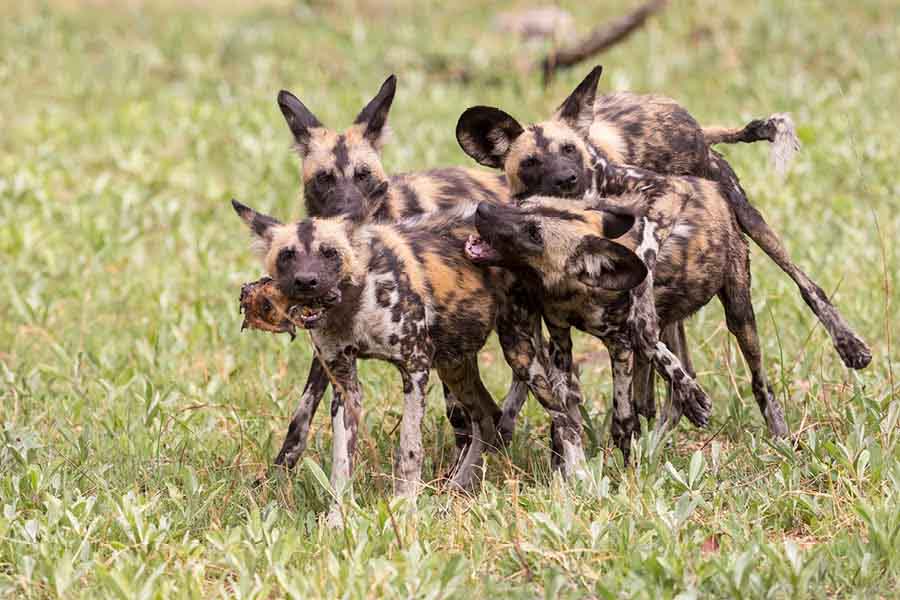
African Wild Dog puppies playing in the wild Shutterstock
While they may seem ferocious from the outside, African Wild Dogs have an extremely tender side when it comes to their children. For the first 10 weeks, they swallow food and regurgitate it in a softer form for the puppies because they can’t eat solid food. This also has the added benefit of preventing the children from wandering outdoors, where they are susceptible to predators.
‘Protective’ Flamingos
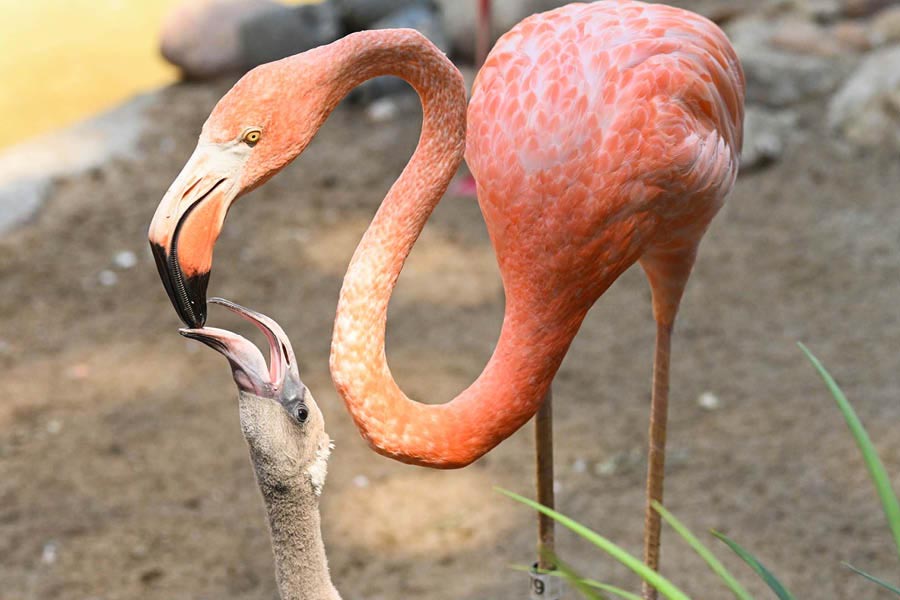
According to research, flamingo dads spend more time than moms, incubating the eggs over the first month Shutterstock
The father flamingo is fiercely protective, often raising the nest’s height after eggs are laid to safeguard it from flooding. According to research, the dads spend more time than moms, incubating the eggs over the first month. They even start shaking their feed while entering the nest in order to keep mud and water away from the chick, well before the egg has been laid!
